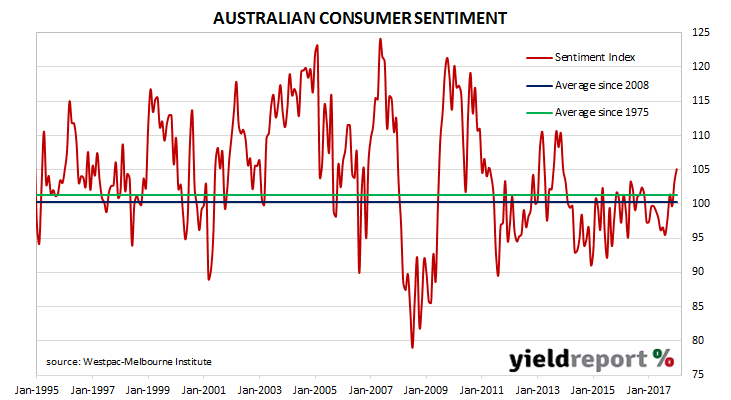During most of the period between 2014 and 2017 there was a divergence between consumer sentiment and business confidence in Australia. Some economists explained the difference by a lack of wages growth; low wages growth is good for business in keeping costs down and margins up. However, households’ propensity to spend is hampered. Other explanations, such as households’ debt levels and the threat of higher mortgage rates have also been put forward.
After the December consumer survey was released, there was some talk of a turnaround and a possible alignment of the business and household sectors. The latest January survey has provided some support to this line of thinking. According to the latest Westpac-Melbourne Institute Consumer Sentiment Index, households were more optimistic than a month ago as the Index reading jumped from 103.3 in December to 105.1 in January. Any reading below 100 indicates the number of consumers who are pessimistic is greater than the number of consumers who are optimistic. The long-term average reading is just over 101.


